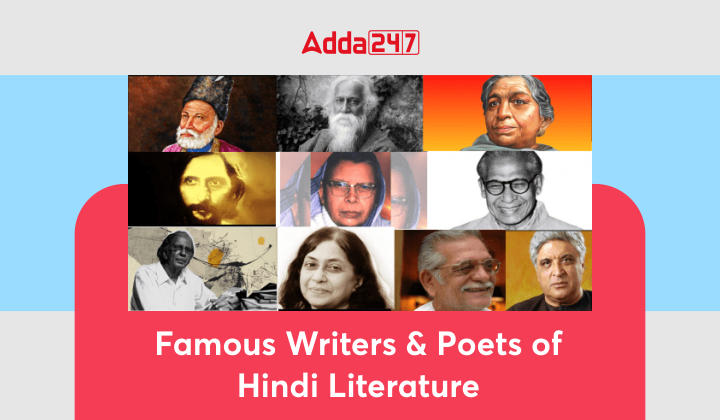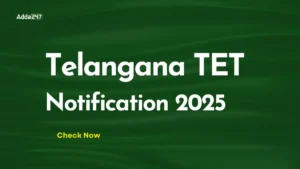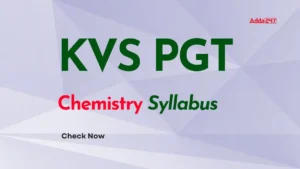Table of Contents
Famous Writers and Poets of Hindi Literature
Hindi literature is written in numerous Hindi dialects, each of which has its unique writing system. The earliest examples of Hindi literature can be found in poetry written in Apabhramsa languages including Awadhi, Magadhi, Ardhamagadhi, and Marwari. Based on the date of composition, Hindi literature can be broadly divided into five forms (genres) in terms of historical development. The Hindi literature section is crucial and helps the candidate in government examinations such as UGC, KVS and DSSSB. Therefore, thorough preparation of the same can help one ace the Hindi paper in an exam.
Overview of Hindi Literature
There are many different genres and literary styles represented in Hindi literature, including poetry, fiction, drama, and non-fiction. Hindi literature uses a lot of symbolism and metaphor, places a lot of emphasis on Indian culture and heritage, and has a strong sense of connection to the land and its people.
Hindi Literature Importance
Hindi language and its usage is one of Hindi literature’s most notable characteristics. Most people in India speak Hindi, which is the country’s official tongue. The Devanagari script is used to write Hindi literature, which is distinguished by its extensive vocabulary and intricate grammar. Hindi’s close ties to Indian culture and history are another key feature. The culture and history of our nation are deeply ingrained in Hindi literature. The important of Hindi Literature can be understand with following points
- Preserves and promotes Indian culture and traditions.
- Fosters linguistic identity and pride in the Hindi language.
- Facilitates national integration and unity.
- Offers social commentary and addresses social issues.
- Provides entertainment and recreation.
- Imparts moral and ethical guidance.
- Inspires and empowers individuals.
- Holds academic and educational significance.
- Influences other art forms.
- Gains global recognition and appreciation.
Hindi Literature Writers
This article will shed light on famous writers and poets of Hindi Literature and their humongous contribution towards the subject.
Mahadevi Verma
Modern Meera was popularly known as Mahadevi Varma (1907–1987). She left her mark on the Chhayavaad school of Hindi poetry. In 1979, she received a Sahitya Akademi Fellowship, and in 1982, she also received a Jnanpith Award. In 1988, she was awarded the highly prestigious Padma Vibhushan.
Bharatendu Harishchandra
Bharatendu Harishchandra (1850–1885) only lived for 34 years. He was such a talented writer that he is regarded as the father of modern Hindi literature and Hindi theater. “Rasa” was pen name. In 1880, Kashi intellectuals conferred him with the title “Bharatendu” in recognition of his contribution to the growth of Hindi literature. Since 1983, the Indian government has given out the Bharatendu Harishchandra Awards to encourage original mass-media writing in Hindi.
Harivansh Rai Bachchan
On November 27, 1907, the Chayavad’s (romantic literature) torchbearer was born in Allahabad, Uttar Pradesh. His poetic collection, “Madhushala,” is well recognised. He put a lot of effort into getting Hindi recognised as India’s national language. He translated several significant works into Hindi while working in the External Affairs Ministry, including Othello, Macbeth, the Bhagavad Gita, Rubaiyat, and W.B. Yeats’ works. In addition to other well-regarded compositions, the four-part serial biography “Kya Bhooloon Kya Yaad Karoon” and “Basere Se Door” needs a mention.
Sachchidananda Vatsyayan
In Hindi poetry, Sachchidananda Hirananda Vatsyayana, often known as “Agyeya,” was a pioneer of contemporary trends (Nai Kavita) and Prayog (Experiments). He founded the Hindi newsweekly Dinaman and edited the literary series “Saptaks.” He served as an Editor-in-Chief in the Hindi newspaper Navbharat Times, owned by the Times of India Group, from 1977 until 1980.
Suryakant Tripathi ‘Nirala’
Along with Jaishankar Prasad, Sumitranandan Pant, and Mahadevi Varma, Suryakant Tripathi, also known by the pen name “Nirala,” was one of the most influential poets of modern Hindi. The two books Parimal and Anaamika by Nirala are regarded as the first works of Chhayavaad Hindi literature.
Jaishankar Prasad
Jaishankar Prasad along with Sumitranandan Pant, Mahadevi Verma, and Suryakant Tripathi is also regarded as one of the Four Pillars of Romanticism (Chhayavad) in Hindi literature. He authored the globally recognised Khari Boli and Brajbhasha.
Maithili Sharan Gupt
One of the earliest poets to use Khari Boli in poetry during the time of Brajbhasha was Maithilisharan Gupt (1886–1964). He published articles in many journals, including Saraswati. His Rang Mein Bhang, the first popular work, was published in 1910. His magnum opus happens to be Bharat Bharati. Gupt’s poetry features themes surrounding Buddhist, Ramayana, or Mahabharata stories. His most well-known piece, Saket, centers around Urmila, Lakshmana’s wife, and Yashodhara, wife of Gautam Buddha. During the last days of the war of independence, his nationalist poems gained immense popularity.
Premchand
Dhanpat Rai Srivastav was the birth name of Munshi Premchand (1880–1936). He produced several Hindi novels and went on to earn the title Upanyas Samrta (King of Novels). Initially, he would write under the pen name “Nawab Rai,” and soon after he adopted the name “Premchand.” He has written about a dozen novels, almost 250 short stories, several articles, and Hindi translations of numerous foreign literary classics. Asrar-e-Ma’abid (in Urdu) or Devasthan Rahasya (in Hindi) was his debut publication that appeared in 1903.
Hindi Literature Poets
Hindi Literature poets, through their literary creations, have left an indelible mark on Hindi literature. Their works continue to be cherished for their depth of thought, spiritual insights, and timeless wisdom.
Kabir Das
Kabir Das, a 15th-century mystic poet, is known for his dohas, which are couplets containing profound spiritual wisdom and social commentary. His verses explore themes of love, devotion, and the search for truth. Kabir Granthawali is a compilation of his verses.
Rahim
Rahim was a poet and statesman in the Mughal court during Emperor Akbar’s reign. He is renowned for his dohas, which are couplets that impart moral and ethical teachings. Rahim Ke Dohe is a collection of his verses that reflect wisdom, human nature, and social values.
Surdas
Surdas, a well-known poet from the 15th and 16th century, is most known for his masterpiece, “Sur Sagar”. This is supposed to contain one lakh songs, only about 8,000 of which are still in existence. He was a student of Vallabhacharya, who gave him teachings in Hindi philosophy and suggested that he sing the Bhagavad Lila. This is a devotional lyrical song praising Lord Krishna and Radha. The songs of Sursagar give a vivid account of Krishna’s childhood Lilas.
Goswami Tulsidas
Goswami Tulsidas (1532–1623), a student of Ramananda and a contemporary of Akbar, is most remembered for his work on the Ramcharitmanas. He also wrote in the Brajbhasha and Awadhi dialects. Additionally, he established the Varanasi Sankatmochan Temple for Hanuman and wrote the Hanuman Chalisa.
His Brajbhasha works include Krishna Gitavali, Gitavali, Kavitavali, Dohavali, Vairagya Sandipani, and Vinaya Patrika. His Awadhi works include the Ramcharitmanas, Ramlala Nahachhu, Barvai Ramayan, Parvati Mangal, Janaki Mangal, and Ramagya Prashna. His final work was Vinaya Patrika.
Meera
The most well-known of the medieval female poets was Meera Bai (1498–1557). She was one of the Vaishnava Bhakti movement’s most important leaders. She is credited with writing about 1,300 pads, or poems, which are also known as bhajans, or devotional songs. The Bhajans of Meera are well-known throughout India and have been translated into other languages for publication worldwide.



 RRB Railway Teacher Exam Date 2025, Exam...
RRB Railway Teacher Exam Date 2025, Exam...
 TS TET Notification 2025 Out (June Sessi...
TS TET Notification 2025 Out (June Sessi...
 KVS PGT Chemistry Syllabus 2025 and Exam...
KVS PGT Chemistry Syllabus 2025 and Exam...














